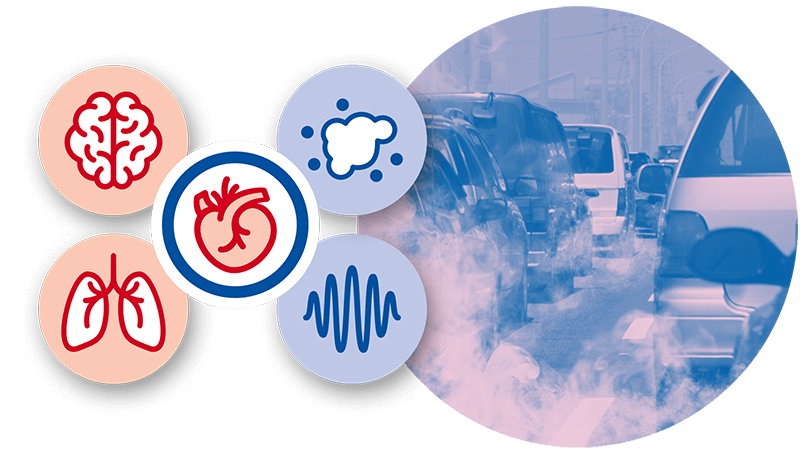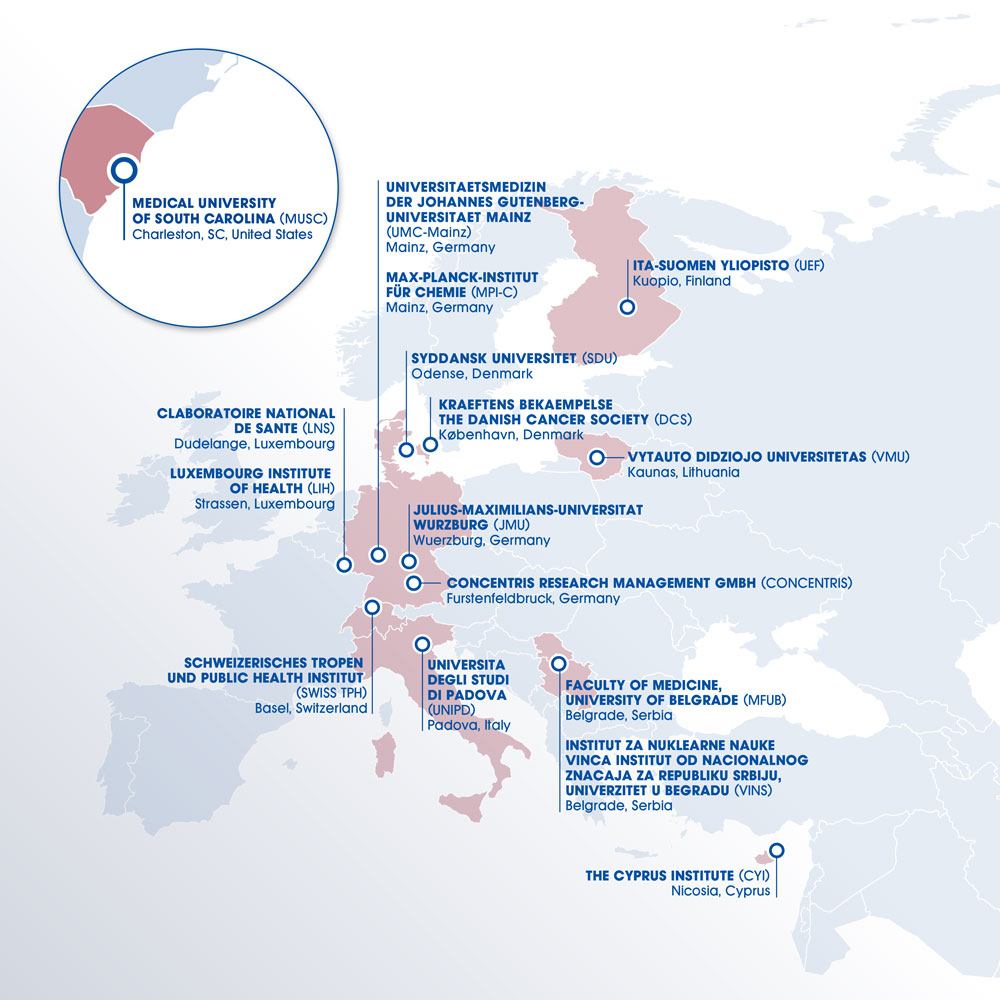Overview
Traffic noise and air pollution, especially particulate matter (PM) and ultrafine particles (UFP), are closely linked environmental risk factors that contribute significantly to the development of diseases such as diabetes, hypertension and atherosclerosis.

MARKOPOLO aims to investigate the impact of traffic noise and air pollution, especially fine and ultrafine particulate matter, on human health through an innovative translational approach. Experimental and computational models are used in clinical, interventional and epidemiological studies. One of the main objectives is to identify disease-relevant biomarkers and to understand the molecular mechanisms involved in diseases of the brain, lung and cardiovascular system. The “from bench-to-bedside” approach uses extensive knowledge of the brain-heart connection and applies modern methods to better understand the causes of disease.
Project duration
EU grant amount
Swiss grant amount
Partners
Project start
Objectives
MARKOPOLO will advance our understanding of the complex interplay between noise, air pollution, and human well-being.
Impact
MARKOPOLO will advance our understanding of the complex interplay between noise, air pollution, and human well-being.
Scientific
Technological
Socioeconomic
Contact
Scientific Coordinator
Head of the Molecular Cardiology Research
University Medical Center Mainz, Germany
Email: daiber[at]uni-mainz.de
Project Management
82256 Fürstenfeldbruck, Germany
Phone: +49 (0)8141 6252 8576
Email: juliane.dittrich[at]concentris.de
- LABORATOIRE NATIONAL DE SANTE
(LNS)
Dudelange, Luxembourg - LUXEMBOURG INSTITUTE OF HEALTH
(LIH)
Strassen, Luxembourg - SCHWEIZERISCHES TROPEN UND PUBLIC HEALTH INSTITUT
(SWISS TPH)
Basel, Switzerland - UNIVERSITAETSMEDIZIN DER JOHANNES GUTENBERG-UNIVERSITAET MAINZ
(UMC-Mainz)
Mainz, Germany - Max-Planck-Institut für Chemie
(MPI-C)
Mainz, Germany - Syddansk Universitet
(SDU)
Odense, Denmark - Kræftens Bekæmpelse – The Danish Cancer Society
(DCS)
København, Denmark - concentris research management gmbh
(CONCENTRIS)
Fürstenfeldbruck, Germany
- VYTAUTO DIDZIOJO UNIVERSITETAS
(VMU)
Kaunas, Lithuania - ITA-SUOMEN YLIOPISTO
(UEF)
Kuopio, Finland - JULIUS-MAXIMILIANS-UNIVERSITAT WURZBURG
(JMU)
Wuerzburg, Germany - UNIVERSITA DEGLI STUDI DI PADOVA
(UNIPD)
Padova, Italy - FACULTY OF MEDICINE, UNIVERSITY OF BELGRADE
(MFUB)
Belgrade, Serbia - INSTITUT ZA NUKLEARNE NAUKE VINCA INSTITUT OD NACIONALNOG ZNACAJA ZA REPUBLIKU SRBIJU, UNIVERZITET U BEOGRADU
(VINS)
Belgrade, Serbia - THE CYPRUS INSTITUTE
(CYI)
Nicosia, Cyprus - Medical University of South Carolina
(MUSC)
Charleston, SC, United States
